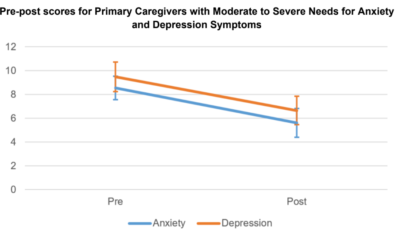
Health x Wellness
Duke-NUS finds more frequent signs of depression and anxiety amongst youth
Duke-NUS Medical School and the Institute of Mental Health survey finds frequent signs of depression and anxiety resulting in youths missing equivalent of 24 school-days.
A survey Duke-NUS Medical School and the Institute of Mental Health (IMH) found depression and anxiety symptoms among Singaporean youths have resulted in them missing on average 190 hours—or the equivalent of 24 days—of school.
This latest survey, conducted between April and June 2022, asked 991 parents about their children, totalling 1,515 youths, in order to gauge the state of youth mental health. The initial screening survey identified 104 parents whose children, aged 4 to 21, had depression or anxiety symptoms. These parents continued to complete a comprehensive survey with questions on school absences, school performance and healthcare utilisation.
The survey also found that these youths’ school performance dropped by an estimated 63 percent. While youths missed an average of 24 days because of their symptoms, 13 percent of them missed three months or more.
The parents reported a similar reduction in their child’s ability to engage in other daily activities, revealing that these conditions permeate all facets of the child’s life.
The real effects of untreated mental health conditions among youth will extend well into adulthood when they are less able to obtain rewarding and high-paying jobs due to poor school performance and other challenges resulting from their illness.
Professor Eric Finkelstein, a health economist from Duke-NUS’ Health Services & Systems Research (HSSR) and senior author of the study
Responses showed that nearly 12 percent of the youths had symptoms consistent with depression while approximately 13 percent had symptoms consistent with anxiety. Over 1 in 10 (16.2 percent) of the youths were reported to have symptoms consistent with at least one of these conditions. Despite this, only 15 percent had a formal diagnosis from a health professional, suggesting that many remain untreated.

Parents reported spending an average of SGD 10,250 on medical care as a result of their children’s mental health condition.
These findings point to the importance of early intervention to help reduce the risk of long-term complications and improve outcomes. For this to happen, mental health awareness and literacy is necessary. For instance, if the parent recognises the symptoms (awareness) and knows what to do (literacy), they could encourage the child to talk about it or suggest getting some help.
Associate Professor Daniel Fung, Chief Executive Officer, Institute of Mental Health, and a co-author of the study
Photo by Sydney Sims on Unsplash and by Hannah Xu on Unsplash








